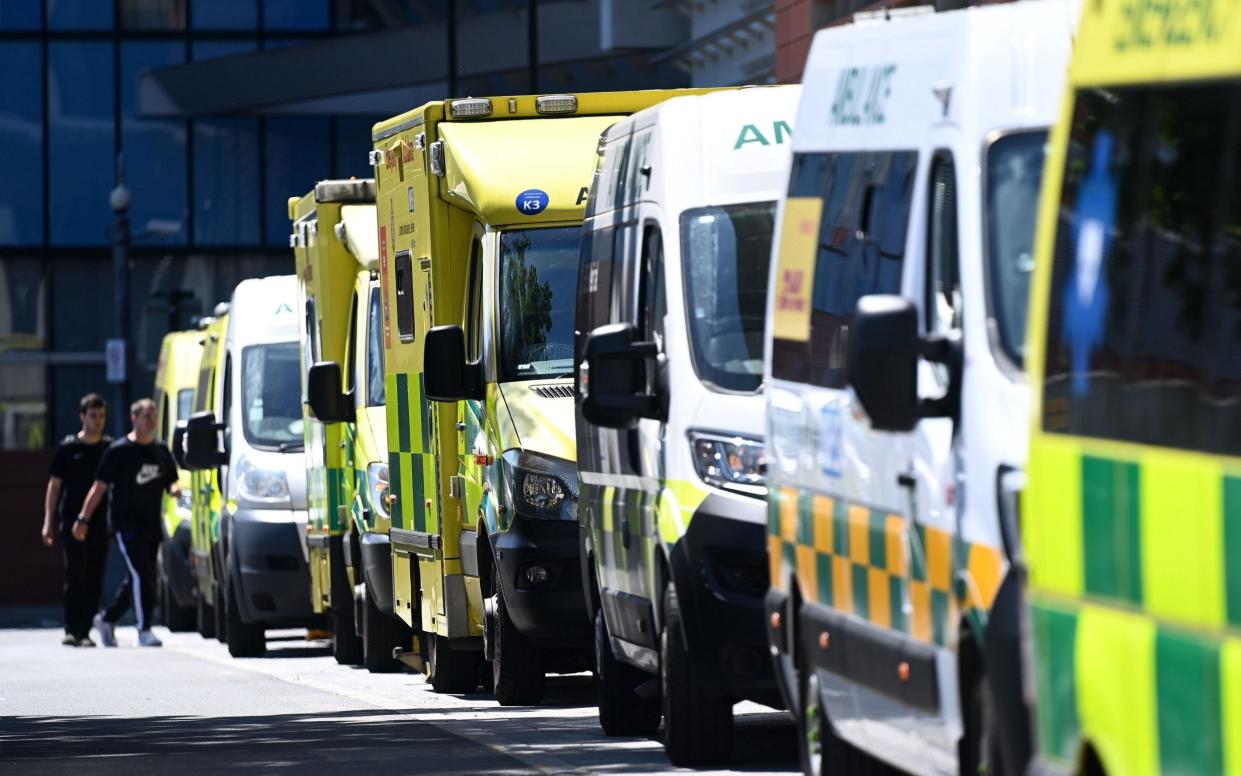Delta variant is reinfecting people who have already had Covid-19

People who have previously caught Covid are now more likely to be reinfected because of the delta variant, a study has found.
Laboratory analysis revealed that the mutation that originated in India is four times more able to overcome protective antibodies from a previous infection compared to the UK’s alpha variant.
The study also found that a single dose of either the Pfizer or AstraZeneca vaccines provided just 10 per cent protection against the delta variant.
The variant was already thought to be up to 60 per cent more infectious than the version which swept the UK last winter.
The findings, published in the journal Nature, help explain why the virus is spreading so quickly, particularly among younger adults, fewer of whom are double-vaccinated.
They are also likely to increase calls for the vaccination of children, given that schools can rely less on natural immunity from past infection than previously thought.
It comes after ministers signalled that they would be prepared to reimpose the controversial bubble system this autumn to control outbreaks in schools.
The Government announced this week it will do away with the system – blamed for forcing hundreds of thousands of children a week to miss school – from July 19, following The Telegraph’s Campaign for Children.
Watch: What you need to know about COVID-19 variants
A group of French scientists led by the Institut Pasteur in Paris isolated an infectious delta strain from a traveller returning from India and examined its sensitivity to antibodies in the blood sera of Covid-19 convalescent individuals, as well as those who had received a vaccine.
They showed that the delta variant had four-fold less sensitivity than the alpha variant to the sera collected from individuals who had recovered up to 12 months previously.
A single dose of either of the two main vaccines used in the UK was “poor or not at all efficient” against both the delta variant and the beta (South African) version, which has not yet gained a strong foothold in Britain.
However, administration of a second dose of either vaccine generated a neutralising response of 95 per cent, although the antibodies were found to be three-to-five-fold less potent against delta than alpha.
Almost two-thirds of adults – 64 per cent – have now received two doses of a vaccine.
However, new data from NHS England show that some six per cent of people aged 80 and over in England may not have received one dose of a Covid-19 vaccine.
The figure is the equivalent of around one in 17 over-80s, or just over 171,000 people, with 47,000 of them in London.
On Thursday a leading UK team of Covid analysts warned that the current wave of cases could condemn thousands more – particularly younger people – to long Covid.
Data from the King’s College London ZOE Covid symptom study found that of 22,638 new daily symptomatic cases, 11,084 are in people who have received a vaccine.
This is an increase of 85 per cent from the previous week.
The figures showed that the positivity rate is significantly higher for those who have received just one dose compared to both – roughly 3.2 compared to one per cent.
According to the King’s study, which relies on up-to-date symptom data entered via its app, there are an estimated 500 cases of long Covid a day among unvaccinated people in the UK.
Watch: What UK government COVID-19 support is available?
Professor Tim Spector, who leads the project, said: “While it seems that the link between cases and deaths has been fundamentally weakened thanks to an excellent vaccine rollout, we are still seeing a correlation between new cases and long Covid.
“Vaccines reduce the chances of people getting long Covid, by reducing the risk of seriously debilitating symptoms and also by reducing the chances of an infection lasting more than three months.
“But unfortunately, if new cases continue to increase then many more thousands of people, especially the young, will be affected by long-term symptoms that leave sufferers unable to live life normally.”
He added: “While the rate of increase seems to be slowing down, we’re yet to reach the peak of this latest wave.”
According to the study, the R rate is now at 1.1 in the UK, with one in 159 people currently with symptomatic Covid.
The virus is replicating quickest in the North East, where the R rate is 1.6.
Of the 315 local areas in England, 304 – 97 per cent – have seen a week-on-week rise in rates and 11 – three per cent – have seen a fall.
South Tyneside continues to have the highest rate, with 1,410 new cases in the seven days to July 4, the equivalent of 933.9 per 100,000 people.
This is up sharply from 377.5 in the seven days to June 27.
Tamworth in Staffordshire has the second highest rate, up from 445.9 to 833.2, with 639 new cases.
North East Lincolnshire has the third highest rate, up from 367.9 to 767.7, with 1,225 new cases.

 Yahoo News
Yahoo News 
